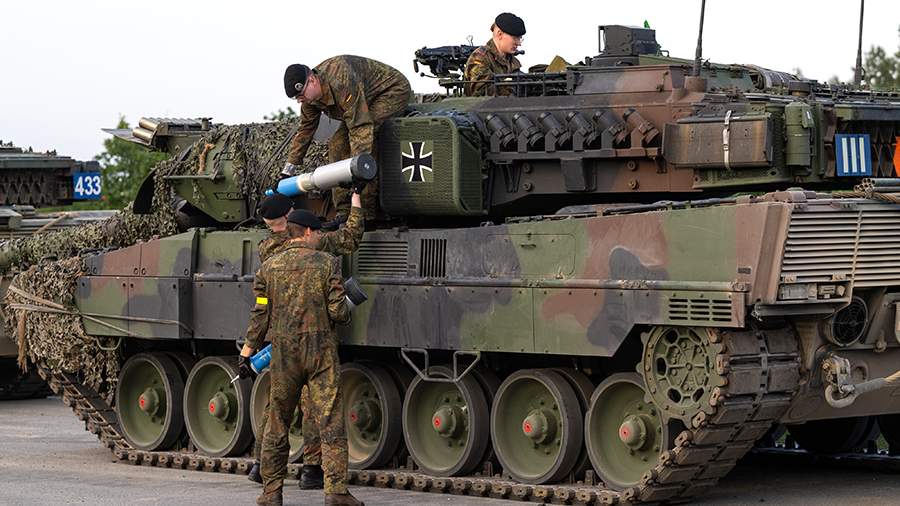Political crises and rearmament. What do the media write about the situation in Europe?
- Новости
- World
- Political crises and rearmament. What do the media write about the situation in Europe?

In the Netherlands, the ruling coalition collapsed due to the withdrawal of the extreme right. In France, they want to return to the two-party system destroyed by President Emmanuel Macron. Germany is looking for ways to attract an additional 80,000 troops, and the UK is announcing a large-scale defense plan. What the world's media write about what is happening in Europe is in the Izvestia digest.
Bloomberg: Ruling coalition collapsed in the Netherlands
The leader of the far-right Dutch Freedom Party (PVV), Geert Wilders, announced his withdrawal from the ruling coalition and the collapse of the government, which will lead to early elections in the kingdom. This step is linked to the refusal of the three other parties forming the cabinet to support Wilders' plan to limit migration, which includes closing the border for asylum seekers, temporarily halting family reunification and returning refugees to Syria.
Bloomberg
Wilders' party won a shocking victory in the 2023 parliamentary elections, as the popularity of far-right parties across Europe grew partly due to promises to reduce migration. However, the Dutch coalition parties refused to appoint Wilders as prime minister, instead appointing former intelligence chief Dick Schoof, who had no party affiliation.
Although support for the PVV has been declining in recent months, it has regained its position as the strongest political force after Wilders announced his new migration plan. In 2023, the Dutch government also collapsed due to disputes over this topic.
Politico: France wants to return to a two-party system
Like Democrats and Republicans in the United States or Labor and Conservatives in Britain, French politics has been dominated by two parties since the early 1960s - the Socialists and the Republicans. President Emmanuel Macron destroyed this system in 2017, when he campaigned on a pro-market, socially liberal platform, seeking to unite moderate people from all walks of life. Centrists gravitated towards Macron and his allies, while hardliners gravitated towards more radical voices — Marine Le Pen on the right and Jean-Luc Melenchon on the left.
Politico
Popularity remains a problem for both parties, but things are on the mend. Republicans returned to the government after Macron's ill-fated decision to call early elections last year. The Socialists, watching Melenchon dominate two consecutive presidential elections from the left, reluctantly joined forces with him. The emerging left-wing movement eventually shocked the political establishment by winning the election.
As the race for the presidency begins to take shape, both camps are striving to regain the lost votes and eventually regain their former places on the right and left flanks of French politics. The biggest challenge facing the Socialists is to overthrow Melenchon without alienating his supporters. The right-wing centrists will have to somehow defeat the prominent conservatives who have sided with Macron and are now preparing their own presidential races.
Handelsblatt: Germany should increase the size of the army by 80 thousand.
The Bundeswehr needs to increase the number of personnel by 80,000 troops in order to meet the new NATO defense requirements. The alliance plans to attract so many soldiers within 15 years, which is a serious challenge for Germany, as Berlin has been facing difficulties in recruiting personnel for many years.
Handelsblatt
New capability targets for all 32 allies are to be agreed on June 5 at a meeting of NATO defense ministers in Brussels. The final decision will be made at the NATO summit in The Hague in three weeks. The Member States have been engaged in intense negotiations over these goals in recent months. They are based on threat analysis and determine how many troops each country should maintain and which weapons systems it should purchase.
Some military officials believe that in order to comply with the new defense requirements, it is necessary to return conscription to the army. At the moment, Germany cannot fulfill its own plan for the number of the Bundeswehr in 203 thousand people. In April 2025, the army's personnel amounted to 182 thousand people.
BBC News: UK to build up to 12 attack submarines
British Prime Minister Keir Starmer has announced the construction of up to 12 new attack submarines. The new conventional nuclear submarines will replace the Astute class, consisting of seven submarines, from the end of the 2030s. Starmer said that the government will take NATO's position on defense issues so that its actions contribute to the overall strengthening of the alliance.
BBC News
The next generation of attack submarines to replace it, SSN-AUKUS, was developed jointly with the Australian Navy as part of a deal announced in 2021 by the previous Conservative government. The Defense Ministry said it expects that with the advent of a new generation of submarines, they will be built every 18 months.
Starmer's defense plan also provides for the creation of up to 7,000 long-range weapons, including missiles and drones, the creation of a "cyber and electromagnetic command" to strengthen the army's defensive and offensive capabilities in cyberspace, and the allocation of 1.5 billion pounds for the construction of six new ammunition factories. At the same time, Defense Secretary John Healey made it clear that he does not intend to increase the total size of the army before the next general election.
Переведено сервисом «Яндекс Переводчик»

